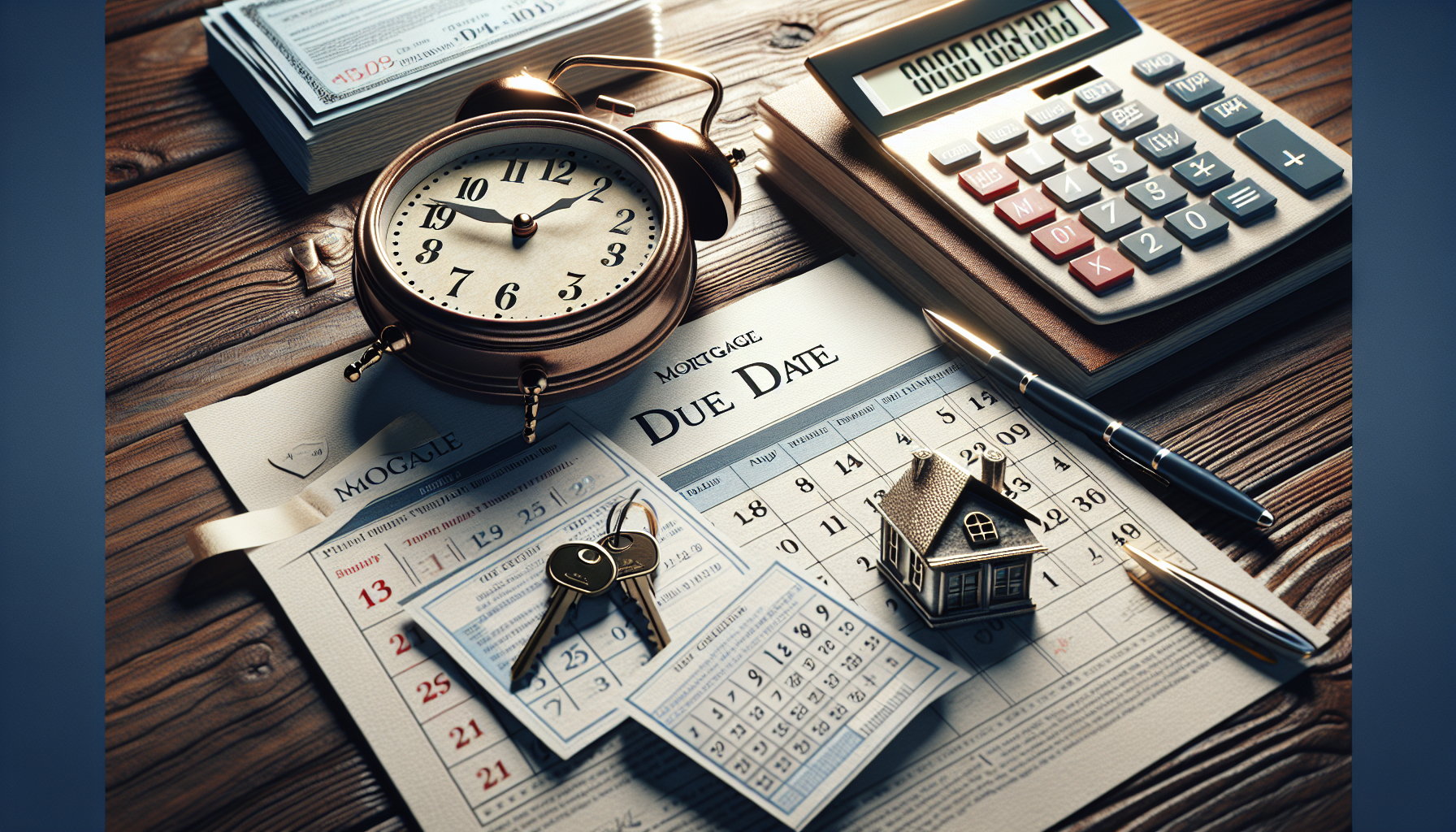
When Is Your First Mortgage Payment Due?
As a new homeowner, one of the most important things to understand is when your first mortgage payment is due. While the closing process can be overwhelming with all the paperwork and details to manage, it’s crucial to be prepared for that initial payment to avoid any late fees or negative impacts on your credit score. Let’s dive into the specifics of your first mortgage payment due date and what you can expect.
Understanding Your First Mortgage Payment Due Date
When to Expect Your First Mortgage Payment
Your first mortgage payment is typically due about 30 days after your closing date. This means that if you closed on your home on June 15th, your first payment would likely be due on August 1st. The reason for this delay is that mortgage payments are paid in arrears, meaning that you’re paying for the previous month rather than the current one.
It’s important to note that this is a general guideline, and your exact first payment date may vary slightly depending on your specific loan terms and lender. Be sure to carefully review your loan documents and ask your lender if you have any questions about your first payment due date.
Factors That Affect Your First Payment Due Date
The main factor that determines when your first mortgage payment is due is your closing date. As mentioned, most lenders set the first payment date about 30 days after closing. However, if your closing date falls near the end of the month, your lender may set your first payment date for the first of the following month to avoid a short first payment period.
For example, if you closed on your home on January 25th, your first payment would likely be due on March 1st rather than February 1st. This ensures that you have a full 30-day payment period rather than just a few days.
What’s Included in Your First Mortgage Payment
Breaking Down the Components of Your First Payment
Your monthly mortgage payment is made up of four main components, often referred to as PITI: principal, interest, taxes, and insurance. Principal refers to the portion of your payment that goes towards paying down your loan balance, while interest is the cost of borrowing the money. Property taxes and homeowners insurance are typically paid to your lender as part of your monthly payment, and they hold these funds in an escrow account until they’re due to be paid out.
It’s important to understand that in the early years of your mortgage, a larger portion of your payment will go towards interest rather than principal. Over time, as you pay down your loan balance, more of your payment will go towards principal.
| Payment Component | Description |
|---|---|
| Principal | Portion of payment that reduces loan balance |
| Interest | Cost of borrowing money |
| Taxes | Property taxes paid to local government |
| Insurance | Homeowners insurance premiums |
Escrow Accounts and Your First Mortgage Payment
As mentioned, your property taxes and homeowners insurance premiums are typically paid to your lender as part of your monthly mortgage payment. Your lender will hold these funds in an escrow account until they’re due to be paid out to your local government and insurance company.
While this may make your monthly payment a bit higher, it can also provide peace of mind knowing that these important bills are being taken care of. Your lender will manage the escrow account and make sure that your taxes and insurance are paid on time.
Making Your First Mortgage Payment
Payment Methods for Your First Mortgage Installment
Most lenders offer a variety of payment methods for your mortgage, including:
- Online payment: Many lenders have an online portal where you can securely make your payment each month.
- Mail: You can typically mail a check to your lender’s payment address.
- Phone: Some lenders allow you to make a payment over the phone using a checking account or debit card.
- Auto-pay: You may be able to set up automatic payments from your checking account each month.
Be sure to choose the payment method that works best for you and your financial situation. If you opt to mail a check, be sure to send it early enough to arrive by your due date.
Avoiding Late Payments and Fees
It’s crucial to make your mortgage payment on time each month to avoid late fees and negative impacts on your credit score. Most lenders offer a grace period of around 15 days after your due date, but it’s best not to rely on this.
If you do miss a payment or think you may have trouble making a payment, contact your lender right away. They may be able to work with you to set up a repayment plan or offer other assistance.
Options for Adjusting Your First Mortgage Payment
Loan Modification and Repayment Plans
If you’re facing financial difficulties that impact your ability to make your mortgage payment, you may have options to adjust your payment. A loan modification permanently changes the terms of your mortgage to make your payments more affordable, while a repayment plan allows you to catch up on missed payments over time.
These options aren’t always available, and you’ll need to work with your lender to see if you qualify. But they can provide relief if you’re struggling to keep up with your payments.
Prepayment and Biweekly Payment Options
On the other hand, if you’re looking to pay off your mortgage faster and save on interest, you may consider making prepayments or biweekly payments. Prepayments are additional payments made towards your principal balance, which can help you pay off your loan faster. Biweekly payments involve making half your monthly payment every two weeks, which results in making one extra full payment per year.
Be sure to check with your lender about any prepayment penalties that may apply, and make sure that extra payments are being applied to your principal balance rather than held in an escrow account.
In conclusion, understanding your first mortgage payment is a critical part of being a responsible homeowner. By knowing when your payment is due, what’s included, and what your payment options are, you can confidently manage your mortgage and stay on track with your financial goals. Remember, if you ever have questions or concerns about your mortgage payment, don’t hesitate to reach out to your lender for guidance.
See also:
- When Is My First Mortgage Payment Due?
- When Is My First Mortgage Payment Due if I Close June 1st?
- When Is First Mortgage Payment Due?
- Understanding the Components of a Monthly Mortgage Payment
- What Is a Mortgage Statement: Understanding and Reading Your Monthly Statement
